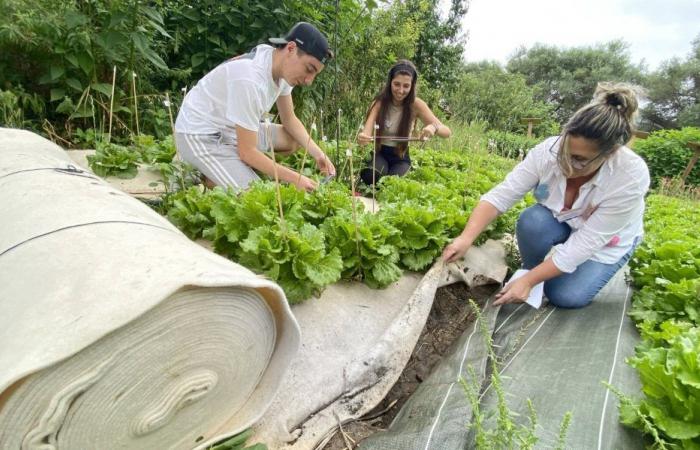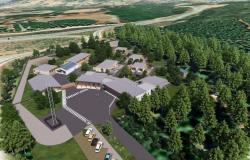
“I am a Batavia who grew up in the open ground. (…) Planted on May 16, 2024 when I only had 3 leaves, I was harvested on July 4 to be weighed by Paloma, 1st STAV student . Enjoy eating me and write a little note for the student who follows me.”
This is the funny thing in essence. “certificate” that beneficiaries of food aid associations on the Côte d’Azur will receive next week. In their basket of food, a salad with an unusual story…
This germinated at the Vert d’Azur campus in Antibes, in the abundant mind of Sylvie Soave, agricultural engineer and professor in this establishment, specializing in agricultural education.
Passionate about life and more of the type to have an idea every second, she took Maellys, Alessandro, Heidi, Ethan and their twenty classmates from the first year of Agronomy and Life Sciences and Technologies (STAV) on a life-size experiment.
Learning by doing
“This training is based on active teaching, we go into the field, we question the territory, the environment, we meet local actors”explains Sylvie Soave. A year and a half ago, her path crossed that of a project manager for the Préalpes d’Azur Regional Natural Park, who is leading a European project around the promotion of local wool.
“In France, the wool industry has completely collapsed. These fleeces end up as waste most of the time even though there was a lot of know-how around this noble product,” explains the teacher, who immediately enrolls her class in one of the three experiments carried out by the PNR as part of this international project.
Wool on the earth
On one of the plots of the Vert d’Azur campus, his 1st STAV class is hatching Vert-laine, a full-scale test of the use of wool in agriculture. Concretely, the plot is divided into several spaces: bare soil, woven canvas mulch, woolly mulch, of two different thicknesses, composed of fleeces, gleaned from the territory of the PNR and transformed by a French company.
In April, Sylvie Soave’s class gets their hands dirty to plant Batavia seeds, after working for several weeks on the best variety of lettuce to select and the quality of the soil.
“The idea is to learn differently, to make hypotheses, to analyze the results together. To choose where to plant, we lifted a 20 cm layer of soil to place organic cotton underwear on it and observe its degradation by the environment. It’s a fun but also serious test, recommended by the National Museum of Natural History, particularly in viticulture.”enthuses the teacher, proud of her students’ unwavering commitment.
Giving meaning to the harvest
To complete the loop, the teacher also wanted these experimental salads to benefit people in food poverty. As long as you put in all the necessary pedagogy.
“On July 4, we will collect 400, which we will measure and weigh to support our work. 200 will be purchased at 1e for collective catering. The other half will go to associations, in particular to local branches of Secours populaire , who were very responsive. I would like the people who receive them to be aware that behind each vegetable, there is someone who has worked the land. Make this notion of a short circuit more concrete, human, perhaps. appreciate the product even more.”
From the little certificates that she will slip in with these salads, Sylvie hopes for a nice return for her students. “A little word, a drawing would arouse emotion in them”says the teacher. A story of land and meaning that she intends to repeat next school year.
Want to know more? Follow the adventure of the Antibes students on Instagram @vert_laine_project





